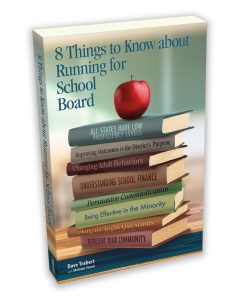Leavenworth teacher Ginger Riddle’s recent Letter to the Editor described student achievement as being ‘pretty darn good,’ citing the 2020 ACT scores. Riddle writes, “If 82% of our students are doing as well as the top half of students in other states, that’s pretty darn good.” Her metric is inaccurate in several ways, but more importantly, Riddle didn’t mention that only 23% of Kansas graduates were considered college-ready in English, Reading, Math, and Science. The rate dropped to 21% this year.
Riddle’s reference to 82% of students is the 2020 participation rate, meaning 82% of graduates took the test. But having an ACT score that is “pretty close to the national average” does NOT mean that every Kansas graduate is doing better than the top half of students in other states.
First of all, the state average composite score is just that – an average. Riddle at least implies that every graduate scored at the state average.
Also, a participation rate of 82% does NOT mean that 82% of all Kansas students ranked higher than students in other states. One must compare the average score in Kansas to the average score of every other state to arrive at the state ranking. (For those keeping track, Kansas ranked #31 this year.)
A ranking does not, however, indicate how well-prepared students are for college and career. Whether 21% college-ready is ‘pretty darn good’ is a subjective determination for every Kansan to make. But for my money, 21% isn’t remotely close to ‘good.’

It should be noted that average ACT composite scores can be affected by participation rates. As we explained here and here, in states where the ACT isn’t mandatory, only students planning to attend college are likely to take the test, and that will artificially increase average state scores over states where the ACT is mandatory for all students. Some of the 2020 decline is likely attributable to higher participation, but not this year. Participation in Kansas dropped from 82% to 79%.
Telling the truth about student achievement is not anti-public school as Riddle alleges. It is essential that parents and legislators understand the depth of the problem so they can make informed decisions to help students get the education they deserve.



